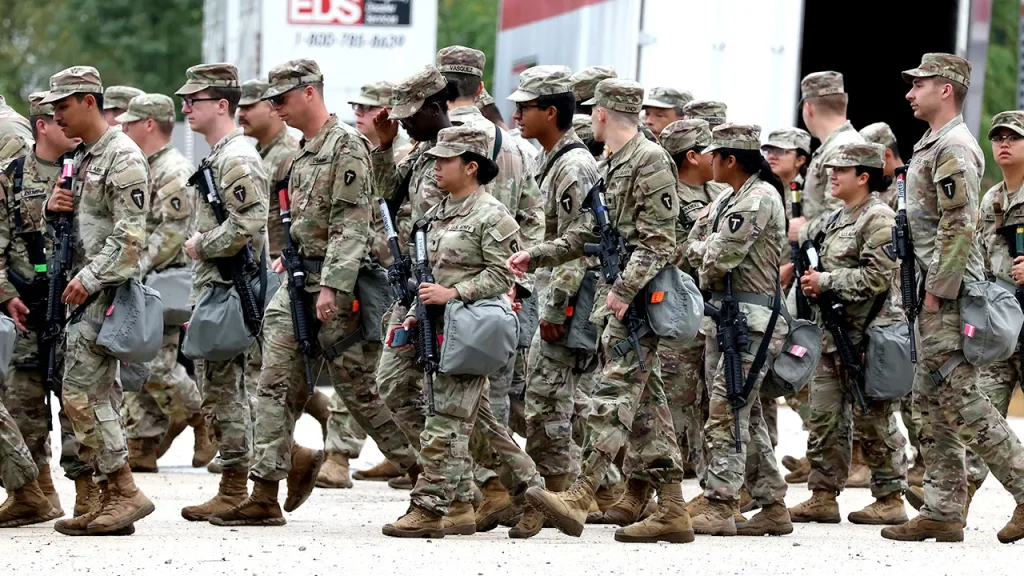Texas National Guard Troops Heading Home Before Thanksgiving
In a development that marks the end of an unusual interstate military deployment, Texas Governor Greg Abbott has announced that Texas National Guard troops will be returning home before Thanksgiving. The troops had been stationed in Illinois since early October in what became a contentious political and legal standoff between two state governments with differing approaches to immigration enforcement.
The deployment began on October 7th when Governor Abbott authorized hundreds of Texas National Guard members to travel to Illinois with the stated mission of protecting U.S. Immigration and Customs Enforcement (ICE) agents and buildings. This action came in response to protests against federal immigration raids targeting undocumented immigrants in Chicago and other Illinois cities. The unusual nature of this deployment quickly drew attention, as it’s rare for a governor to send National Guard troops to another state without an invitation from that state’s governor – a move that Democratic officials argued violated constitutional principles and state sovereignty.
Illinois Governor JB Pritzker did not mince words in his response, characterizing Abbott’s action as an “invasion” and demanding the immediate withdrawal of the Texas troops. The situation escalated into a legal battle that reached the federal court system, where judges ruled that while the troops could remain physically present in Illinois, they could not be activated for duty. This effectively rendered the deployed guardsmen unable to perform any functions beyond securing their own temporary base at a U.S. Army Reserve training center. With their mission severely constrained by legal rulings, the troops have essentially been in a holding pattern while awaiting final resolution.
The dispute eventually made its way to the U.S. Supreme Court, which has not yet issued a definitive ruling on the constitutional questions raised by this unprecedented deployment. However, Abbott’s decision to recall the troops before the Thanksgiving holiday suggests an acknowledgment that the mission has reached its practical conclusion, regardless of any pending legal determinations. “They’ve already been ordered to return before Thanksgiving,” Abbott told Nexstar in a brief statement that offered little additional context about the reasoning behind the timing of the withdrawal.
This interstate deployment highlights the growing tensions between states with different approaches to immigration policy. Texas, under Abbott’s leadership, has taken increasingly aggressive measures to address what it characterizes as federal failures in border security, while Illinois has positioned itself as more protective of immigrant communities. The deployment of military personnel from one state to another without invitation represented a significant escalation in this ongoing policy disagreement, raising serious questions about the boundaries of state authority and the proper channels for addressing immigration enforcement disputes.
As the Texas National Guard prepares to return home, the legal questions raised by their deployment remain largely unresolved at the highest judicial level. This episode may serve as an important precedent for future interstate relations and the limits of state executives’ authority to deploy their National Guard units across state lines. While the immediate standoff appears to be ending with the troops’ return home for the holiday season, the broader political and constitutional questions about immigration enforcement, state sovereignty, and the proper role of state military forces will likely continue to shape American political discourse in the months and years ahead.















